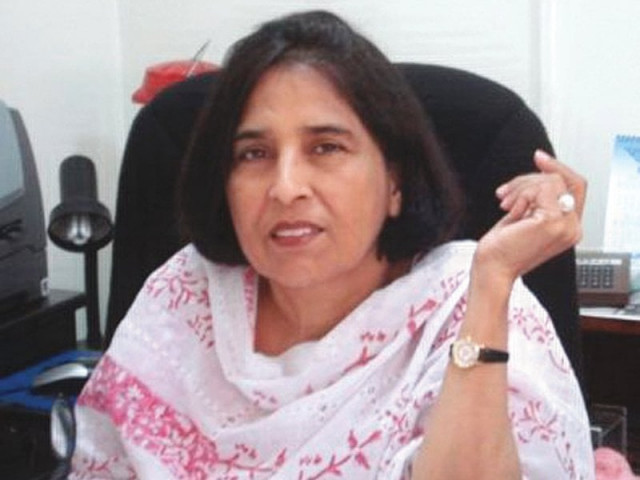First nanochemistry lab of Pakistan to be set up at KU
It will be a part of the International Centre for Chemical and Biological Sciences.

KU Dean of Sciences, Prof. Shahana Urooj Kazmi.
The country’s first ever nanochemistry laboratory is slated to open at Karachi University next year.
A ceremony to mark the beginning of the construction of the facility, called Latif Ebrahim Jamal Research Institute of Nanotechnology, was held at the institution on Monday. The first-of-its-kind research centre in the country will be a part of the university’s International Centre for Chemical and Biological Sciences (ICCBS) and receive Rs50 million worth of funds from the Husein Ebrahim Jamal Foundation.
The director of ICCBS, Prof. Muhammad Iqbal Choudhary, said that the new centre will be housed in a two-storey building with ten large laboratories, a central instrument room, dedicated library, a central workshop, a pilot plant and faculty, seminar and meetings rooms.
Speaking at the occasion, the founder of the Higher Education Commission, Dr Attaur Rahman, said, “In today’s world, nanotechnology has a major influence on the development of science and technology as well as engineering. The world of nanotechnology involves shrinking things down to a whole new level, where things are a billion times smaller than the world of metres that we live in.” He added that the country’s progress in the field of nanotechnology is strategically important for rapid industrial development. Dr Rahman added that in the near future, many fields, including manufacturing of new diagnostics, medicines, agrochemicals, defence products and engineering equipment will become dependent on nanochemistry.

The university’s dean of sciences, Prof. Shahana Urooj Kazmi, was quite optimistic that Pakistan will be able to create a pool of skilled manpower in the discipline as well as a network with international experts. “I believe the scientists from across the world will have a great time doing research with the latest equipment at the state-of-the-art centre.”
The HEJ Foundation had also played a key-role in the establishment of world-famous HEJ Research Institute of Chemistry at the university, which garnered tremendous recognition for Pakistan in the fields of chemical and biological sciences, said its chairperson, Aziz Latif Jamal. The foundation had also established the largest digital library in the region, named as LEJ National Science Information Centre. It has access to over 31,000 science journals and around 60,000 books from 220 international publishers.
Sindh governor’s adviser on higher education, Aftab Lodhi, was also present at the event.
Published in The Express Tribune, February 26th, 2013.


















COMMENTS
Comments are moderated and generally will be posted if they are on-topic and not abusive.
For more information, please see our Comments FAQ